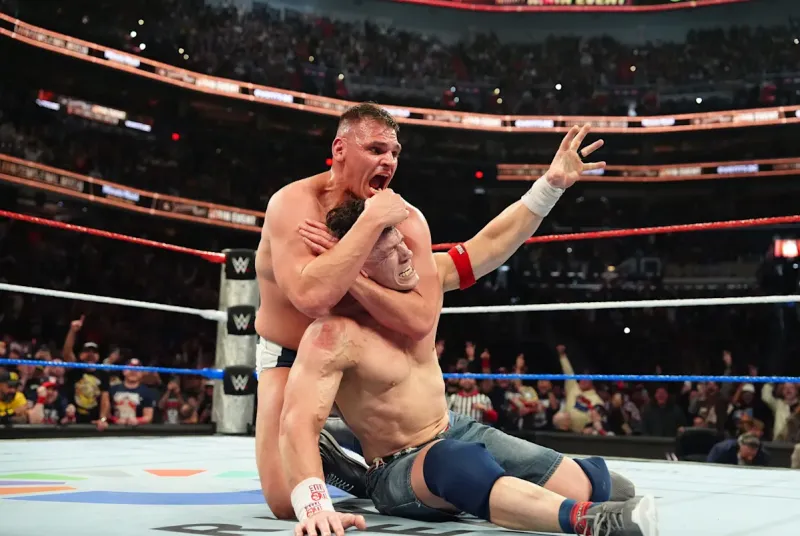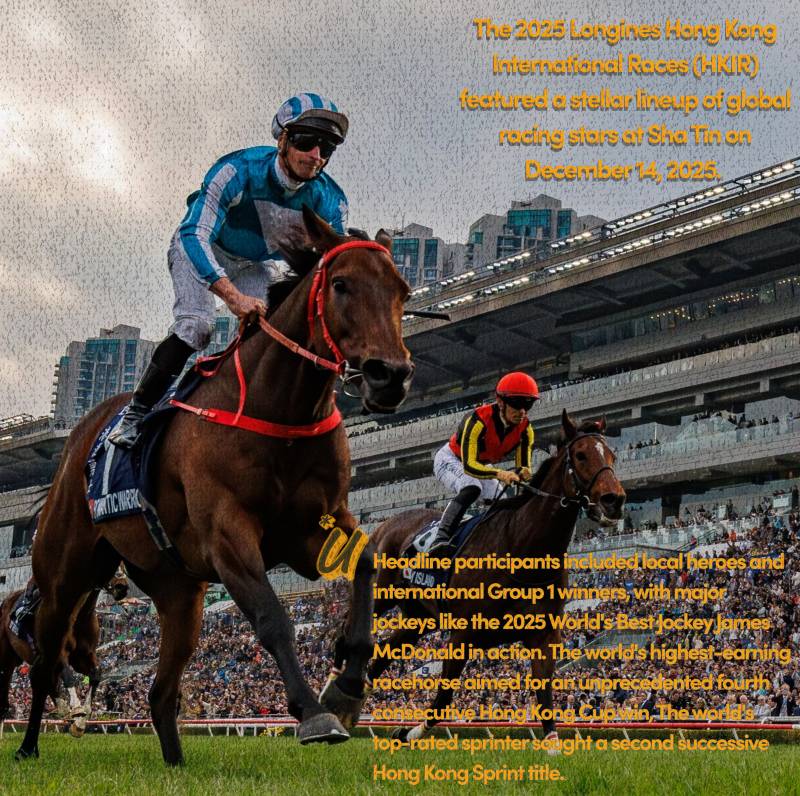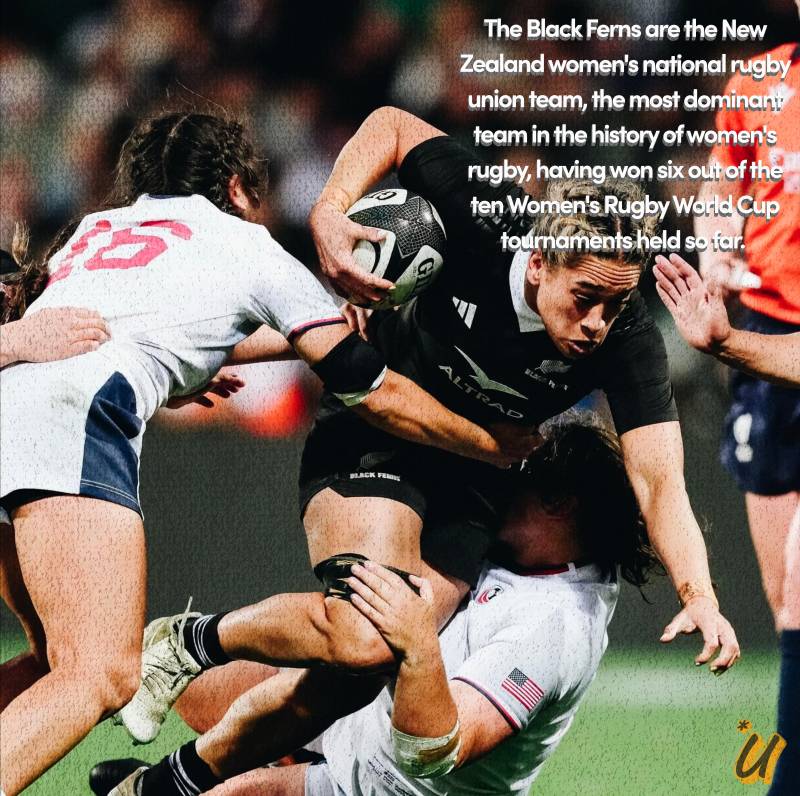They arrived like an earthquake that shook the foundation of the country-club atmosphere of tennis, a one-two punch of unnaturally gifted, unapologetically Black athletes who flaunted their braided hairdos and guaranteed victories at the hallowed grounds of Wimbledon and the U.S. Open.
But while Venus and Serena Williams changed the face of the sport as they progressed from upstarts to unquestioned champions to revered veterans, they remained unchanged in their devotion to one another, their sisterly love lifting them through personal challenges, public failures and numerous heated battles for on-court bragging rights.
Serena tried to copy Venus when they were children
By now, much has been made of the girls' entry into tennis through the unorthodox methods of their father, Richard: After realizing the prize money available in the sport, he taught himself, his wife and three older daughters how to play, before striking gold with Venus and Serena on the public courts of Compton, California, in the 1980s.
Venus and Serena soon crept into the national spotlight as tennis prodigies, though this was mainly due to the eye-popping efforts of older sister Venus; already crushing the ball at speeds of almost 100 mph by age 11, she went undefeated in 63 USTA sectional matches the following year.
Serena was winning at nearly the same clip, but back then, her primary focus seemed to be on emulating her big sister.
"What didn't I do to try to copy Venus when I was younger?" she rhetorically asks in the 2012 documentary Venus and Serena. "I mean, her favorite color was my favorite color, her favorite animal was my favorite animal, she wanted to win Wimbledon, I wanted to win Wimbledon.
"I was never the one that was supposed to be, like, a great player," she continues. "But I was determined not to become a statistic, so that's the only reason I played tennis."
Venus had to deal with Serena's surprising Grand Slam win
Both girls turned professional at age 14, and by the late 1990s, they were transforming women's tennis with their overpowering groundstrokes and bold declarations of confidence. Venus set the tone by reaching the 1997 U.S. Open final at age 17 and, after she emerged victorious in the sisters' first title clash at the 1999 Lipton Championships, they teamed up to win the first of 14 Grand Slam doubles titles later that spring at the French Open.
Behind the scenes, they were just a couple of teenage girls navigating a new world of growing fame and fortune together. They bought a home in Florida's Palm Beach Gardens in 1998, and late that year, they launched their joint Tennis Monthly Recap newsletter, which featured observations of life on the women's tennis tour and interviews with fellow professionals.
The first notes of disharmony surfaced when Serena, seemingly fulfilling her father's prediction that she would emerge as the greater champion, became the first Williams sister to win a Grand Slam singles title at the 1999 U.S. Open. The cameras caught a somber Venus watching the final from the stands, unable to enjoy her little sister's triumph.
"I think at the time, not to win the first major was tough for me, because I felt like I should have, as the older sister, to have been able to step up and do more and be tougher," she later recalls in Venus and Serena. "It's a defining moment of like, how are you going to react to something like that? Am I going to learn from her example or am I going to crumble?"
Opting for the former, Venus stepped up her game and restored the natural family pecking order by claiming her own Grand Slam singles titles at Wimbledon and the U.S. Open in 2000. She then vanquished Serena to win a second straight U.S. Open the following year, an effort that left her torn between her competitive and familial instincts: "I always want Serena to win, and so it's kind of strange, because I'm the big sister, I take care of Serena, I make sure she has everything even if I don't have anything," she said afterward in an on-court interview, per Venus and Serena.
Venus and Serena endured hostilities on the court and family troubles
Although the Williams sisters were the two biggest draws in women's tennis by the time of their 2001 U.S. Open showdown, the path to the top of the mountain hadn't been entirely smooth.
Years of building resentment over their early successes, alleged aloofness and uneven play against one another had come to a head earlier that year at the Indian Wells tournament in Southern California. After Venus abruptly withdrew from her scheduled semifinal match with Serena because of an injury, the sisters and their father were roundly booed during Serena's championship match the following day, with Richard leveling accusations of racial taunting from nearby spectators.
There would be more personal obstacles to overcome. Richard and his wife, Oracene, completed their divorce in 2002, and the following year, the entire family was left reeling from the shooting death of the oldest Williams sister, Yetunde, in an apparent case of mistaken identity between warring gangs.
After 2004 passed without a Williams sister holding up a Grand Slam trophy for the first time in six years, the duo bounced back to win a combined 16 singles and doubles Grand Slam titles between 2005 and 2010. Additionally, they successfully leveraged the appeal that made them sports' most famous siblings. Along with teaming up to publish Venus and Serena: Serving from the Hip in 2005, they became the first female African Americans to claim an ownership stake in an NFL franchise by purchasing a share of the Miami Dolphins in 2009.
The sisters began forging lives away from one another but still remained close
While Venus and Serena remained conjoined in the public eye as a pair of hard-hitting sisters who relished the opportunity to showcase their fashion sensibilities on the court, each was forging a distinct identity simply through the course of growing up and following her individual goals and desires.
Venus became known for taking the lead on the issue of equal pay for male and female players. And Serena emerged as more of a pop-culture celebrity, her status burnished by romances with high rollers like Hollywood producer Brett Rattner and rapper Common.
By 2012, Serena had left the tight-knit family circle to seek help from French coach Patrick Mouratoglou. She moved out of the longtime home she shared with Venus the following year. And in 2015, she personally ended the family boycott on Indian Wells by making her first appearance at the tournament since the ugly events of 2001.
But even as the sisters plowed ahead on their individual paths, there was no rupturing of the airtight bond that had formed during their earliest days in Compton and strengthened through trips to faraway tournaments, media criticism and debilitating illnesses that sidelined both in 2011 – a pulmonary embolism and hematoma for Serena, and a diagnosis of the autoimmune disorder Sjogren's Syndrome for Venus.
"Love is, I think, one of the strongest things that you can have," Serena told Sports Illustrated in 2014. "I have a sister, and she knows exactly what I'm going through. She knows everything about me. She is the only person I can really talk to after I lose, because only she knows how I feel. Nobody else. They can feel, they can try, but they’re just not on that level. Only she understands it."
Proving that family ties were stronger than personal grudges, Venus again followed the example of her younger sister and ended her own boycott of Indian Wells in 2016. Later that year, she and Serena returned to Compton to launch the Yetunde Price Resource Center in honor of their slain sister.
Their intense matches continued into the later stages of their careers
By that point, it was clear that Richard Williams was correct in his early appraisal of his daughters' championship potential. Venus dipped in and out of the Top 10 during the 2010s while Serena kept winning at a historic pace, including a defeat of her big sister at the 2017 Australian Open to set a modern record with her 23rd Grand Slam singles title.
But while Serena could lay claim to being the greatest of all time, her matches against Venus remained a difficult grind for both. "She's the toughest player I've ever played in my life, and the best person I know," Serena said, following their quarterfinal match at the 2015 U.S. Open. "So it's going against your best friend and at the same time for me going against the greatest competitor in women's tennis."
Meanwhile, their relationship remained virtually the same through continued changes to their lives. After Serena had daughter Olympia with tech entrepreneur Alexis Ohanian in 2017, she gushed to Today about Venus's talents as an aunt. Serena also turned to big sister's interior design firm, V Starr, to take charge of renovating the south Florida home she shared with her husband and daughter, a task that was completed by summer 2020.
Around the same time, the coronavirus pandemic had upended everyone's lives. The sisters sought to bring a little more joy to their fans by leading online workout sessions, though they especially welcomed a return to normalcy with a match against one another at the August 2020 Top Seed Open.
The 31st head-to-head encounter of their professional careers produced yet another two-hour-plus slugfest that ended with a Serena win and, according to The New York Times, "a long, mutually weary look after the duel."
Just another shared moment of understanding between these rivals and soulmates after four decades together, with a countless number to come as they inch toward the end of their careers and the adventures beyond.
SOURCE : BIOGRAPHY




